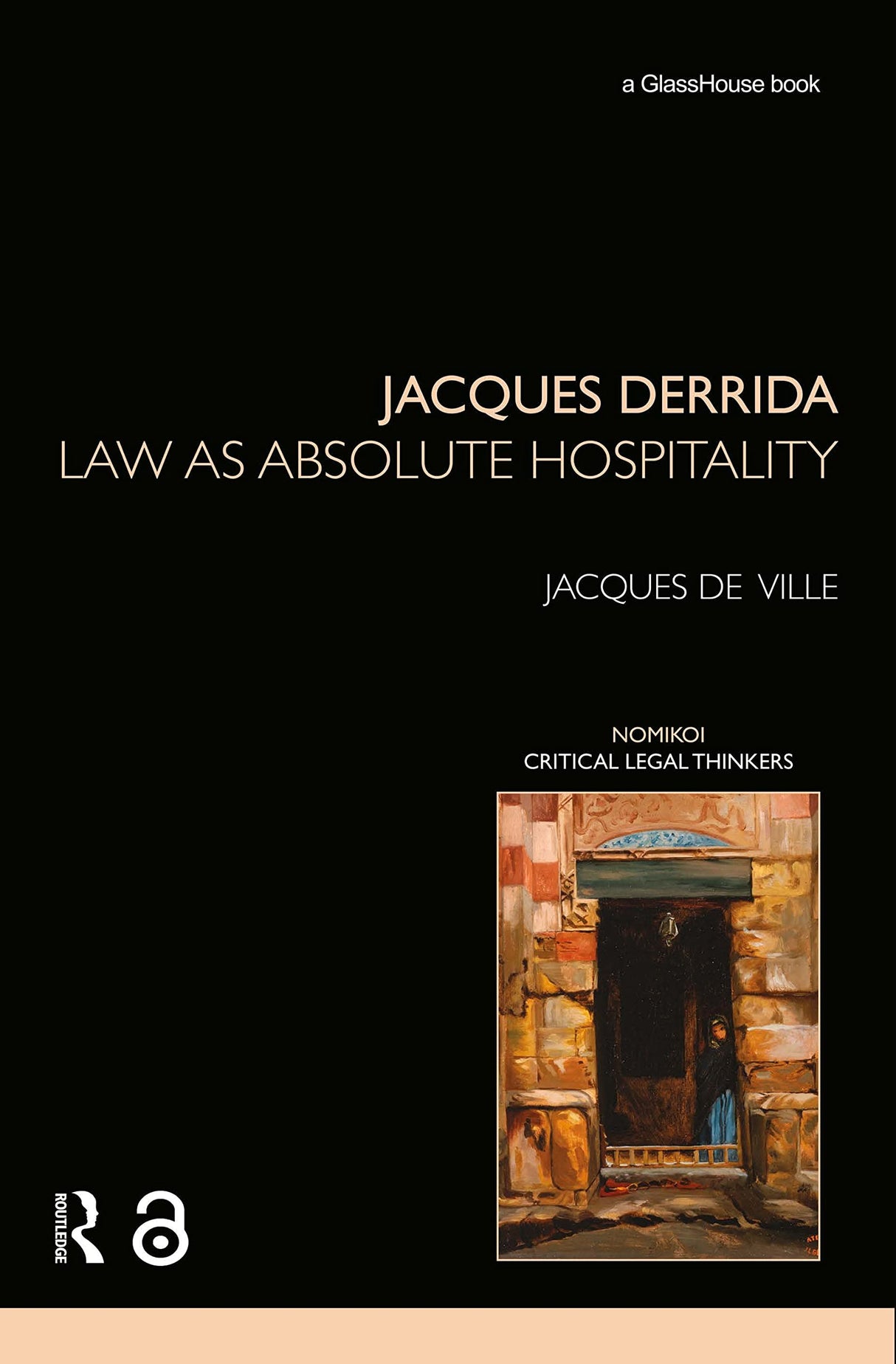Jacques Derrida: Law as Absolute Hospitality (Nomikoi: Critical Legal Thinkers)
Jacques Derrida: Law as Absolute Hospitality (Nomikoi: Critical Legal Thinkers) is backordered and will ship as soon as it is back in stock.
Couldn't load pickup availability
Genuine Products Guarantee
Genuine Products Guarantee
We guarantee 100% genuine products, and if proven otherwise, we will compensate you with 10 times the product's cost.
Delivery and Shipping
Delivery and Shipping
Products are generally ready for dispatch within 1 day and typically reach you in 3 to 5 days.
Book Details
• Format: Paperback
• Language: English
• ISBN-13: 9780415821490
• Writer: Jacques de Ville
• Book Edition: 1
• Publisher: Taylor & Francis Ltd
• Pages: 232
• Binding: Paperback
Jacques Derrida: Law as Absolute Hospitality presents a comprehensive account and understanding of Derrida’s approach to law and justice. Through a detailed reading of Derrida’s texts, Jacques de Ville contends that it is only by way of Derrida's deconstruction of the metaphysics of presence, specifically in relation to the texts of Husserl, Levinas, Freud, and Heidegger, that the reasoning behind his elusive works on law and justice can be grasped. Through detailed readings of texts such as To Speculate – on Freud, Adieu, Declarations of Independence, Before the Law, Cogito and the History of Madness, Given Time, Force of Law, and Specters of Marx, De Ville argues for a continuity in Derrida’s thinking and rejects the idea of an ‘ethical turn’. Derrida is shown to be neither a postmodernist nor a political liberal, but a radical revolutionary. De Ville also controversially contends that justice in Derrida’s thinking must be radically distinguished from Levinas’s reflections on ‘the other’. The notion of absolute hospitality — which Derrida derives from Levinas but radically transforms — provides the basis of this argument. Justice, on De Ville’s reading, must be understood as a demand of absolute hospitality imposed on both the individual and the collective subject. This book offers a much-needed account of Derrida's influential approach to law and will be an invaluable resource for those interested in legal theory, ethics, and the politics of deconstruction.





